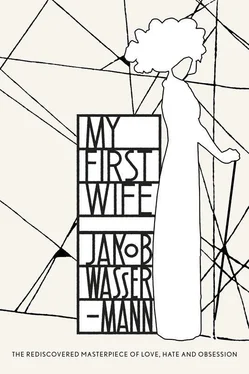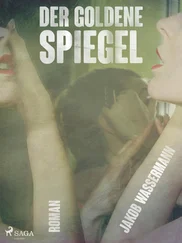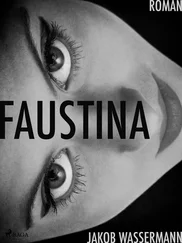These are all posthumous thoughts and I could add even more to them, were I not afraid that the roughness of my judgement today would contrast too much with the feelings and behaviour I had at the time. Because soon enough I completely belonged and was entirely theirs. In my new bod’s naivety I allowed myself to be ensnared and filled full of their interests, woven into their relations, taught to like their tastes and actually to believe that their bustling Negro village was the whole world. I was thrilled with them. The luxury in which I was allowed to participate fogged my vision. Each of the magnificent villas where I was introduced seemed palatial to me. Every bank manager I met looked to me a man of limitless power. The tedium of their society somehow escaped me; the faces with the dull tension of people blowing soap bubbles with a straw and vying with one another who can make the biggest and gaudiest, escaped me. The fact that they were completely undiscriminating; that all their business dealings were somehow inconsequential; that they stuck together externally like burrs, while within there was no cohesion: I didn’t see it, and if I did then I still allowed myself to be lulled to sleep by their lullabies. I didn’t yet understand the law of the kraal, the mysterious power of the kraal, even though I was caught in its clutches. It was the same in every family: sisters, brothers, in-laws and their trail, nephews and nieces, more of them with each year — their weal and woe were the weal and woe of the kraal, the world outside was hostile, suspect and basically unknown. What was I so fascinated with? If you throw a lasso round the neck of a wild mustang, it starts to tremble and stands perfectly still. But was that really my situation? Was I not more of a deserter, a turncoat? I didn’t account for myself. I can honestly say I didn’t know. Of course, I was never entirely sure of myself either. This secret uncertainty will have been why I introduced my friend Riemann into the Mevis circle. The occasion was easy enough: I had promised Ganna, her sisters and one of the brothers-in-law I especially liked that I would read them a few chapters from my new book. And so I did, and it seemed to me I could have no complaints about not being properly understood and appreciated. Or was it just Ganna’s passionate rapture that blinded me to the effect on the others? Were they not a little like grown-ups listening indulgently to the breathless rigmarole of a small boy playing cowboys and Indians? Or like people watching the angels and devils projected by a laterna magica? Admittedly, there was one soul present in whom the seed unexpectedly took root: in Irmgard’s. But that too I didn’t know until years later.
GUSH
Ganna, meanwhile, was quite transformed. No more rebelliousness, no more tantrums, no more coffin nail. An obedient daughter, a loving sister. When her father came home in the evening she would run to his bedroom, pick up his fleece-lined slippers, kneel down at his feet and unlace his boots. In the morning she would stay in the kitchen, a place she’d previously shunned, the theatre of the anti-spirit, and try to learn what can be magicked up with flour, oil, green leaves, sugar and spices. It wasn’t interesting, she was certainly never going to learn, she wouldn’t even learn how to boil an egg; but it had to be done, it was the custom, those in the know insisted it was part of a good marriage. Under the influence of the literature of the day, as a faithful disciple of Nietzsche and Stirner, she had deeply despised family and family traditions. Now, though, the happiness that she carried in her breast like a sun gilded the least member of the household, the lowest servant. Even the old Kümmelmann woman, with whom she had lived in enmity ever since she had been able to think, enjoyed new-found respect from her. ‘What have you done to our Ganna?’ the sisters and the mother would ask me. ‘She’s unrecognizable.’ When I was told stories of how disobedient, how difficult she had always been, of the mad pranks she would perform, I would assume an expression of disbelief, because I knew no other Ganna than the one I saw, my gentle, dreamy, smiling, mild and tender fiancée.
There was one thing that struck me as odd. How could it be that her brain, thus far crammed full of poetry, of famous names and idealism and ambition, now suddenly became a repository of twenty or thirty birthdays, deathdays, honorific days and family anniversaries? That overnight she found in herself a mawkish piety for the most distant of relations and would pay calls on obscure, long-lost cousins, twice removed, or on various mothers of various in-laws? The swans said: she is putting her happiness on display, she wants to show off with her Alexander Herzog. A malicious interpretation. Perhaps it was to make amends for past neglect. She had seemed to be a cheeky minx and an enfant terrible for so long that she was now compelled to try and make a good impression.
I don’t know why this new trait bothered me. To me there was something cramped and driven about it, a bad mixture of piety and politicking. It got on my nerves. But I didn’t have the courage to tell her. When she felt that I was displeased by something, she would lapse into despair and quiz me for so long until I chose to deny everything, so as not to see her woeful eyes any more. On one occasion, though, I was unable to repress my irritation. In a little lane in the old part of the city lived an ancient couple by the name of Schlemm, who in some hard-to-trace way were connected to a defunct branch of the Westphalian Lottelotts; there were other Lottelotts as well, but they hailed from Cologne. These Schlemms were incredibly dull; he was deaf and somewhat imbecile, she as chattersome as an old hen. Ganna was courting them, agreeing with everything they said, patting their wrinkled hands, calling them Uncle and Auntie, raving about their wise serenity and their terrific characterful faces. One day I let her talk me into going round to see them. She said the dear old folks had only one wish left in this life, and that was to see me before they died. That was some line she’d got from somewhere. Well, I went with her, what was the big deal? It was like a puppet theatre, where all the puppets were talking gobbledygook. It was only half an hour but it went on for ever. But what tormented me was Ganna’s absurd teariness. I just couldn’t understand it. Where was the reason, the cause? Two soulless silly bags of bones, and all that emotion? ‘I feel so sorry for them,’ she justified herself later, when I was unable to repress my anger; ‘Uncle has a bad liver and Auntie has been tending him for the past forty-three years.’ She sent me a melting look from her big blue eyes and I felt a little scared, I don’t know what of.
THE MARRIAGE CONTRACT
Between Christmas and New Year’s Day, a few days before the beginning of 1901 and hence of the twentieth century proper, I was summoned by the Mevis family solicitor to his office at a given hour. When I turned up the Professor was already there, the solicitor, an efficient busybody with the face of a lance corporal, greeted me with a little show of ceremony, and on a leather sofa where he had cleared himself a little space free of legal files and law magazines sat the notary, with a Virginia cigar in a corner of his mouth. The last-named handed me a calligraphically perfect document — at that time typewriters were not yet in common use in law offices — and asked me to peruse it. I tried hard to oblige. The dowry was spelled out in figures; but the rights and duties of the respective spouses were described in utterly opaque legalese. There was also something about revocability in the event of a dissolution. I wasn’t familiar with the word. Since I didn’t ask, no one felt called upon to tell me. I was bored. I signed. I thought: the Professor is a man of honour, why shouldn’t I sign? It seemed unreasonable to me to ask questions. Twenty-five years later, I understood what it was I had put my name to. A quarter of a century had to pass before the light went on and I saw I had been duped. In the spirit of family, of course, and loyalty. I could have asked. I could have gone to a lawyer myself. It never occurred to me to do so. It was my first encounter with a notary. A notary, I thought, is the embodiment of the law; this is all above board. I had to pay for thinking so.
Читать дальше







![Jakob Wassermann - Issue Does Not Exist],errors:{](/books/585068/jakob-wassermann-issue-does-not-exist-errors-thumb.webp)




